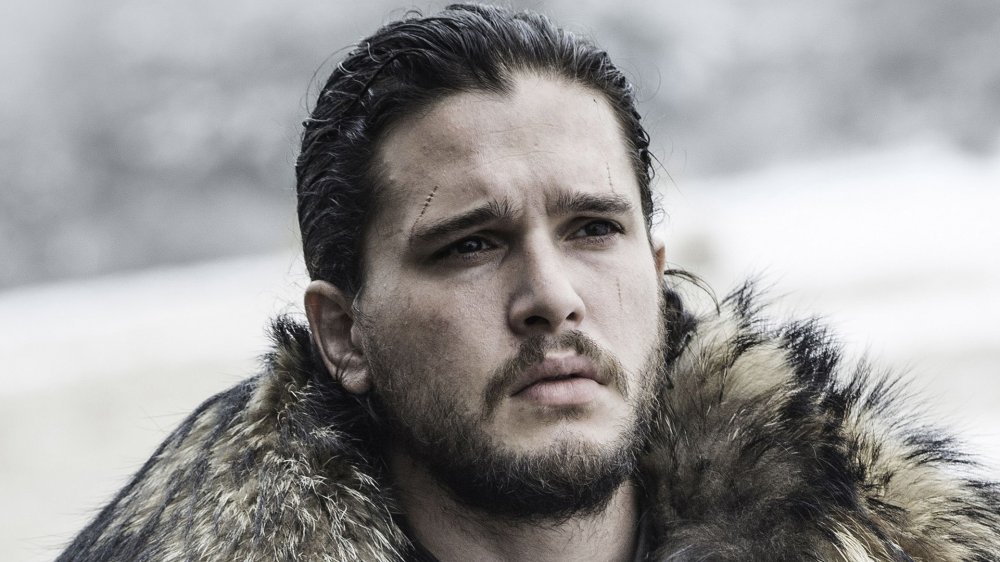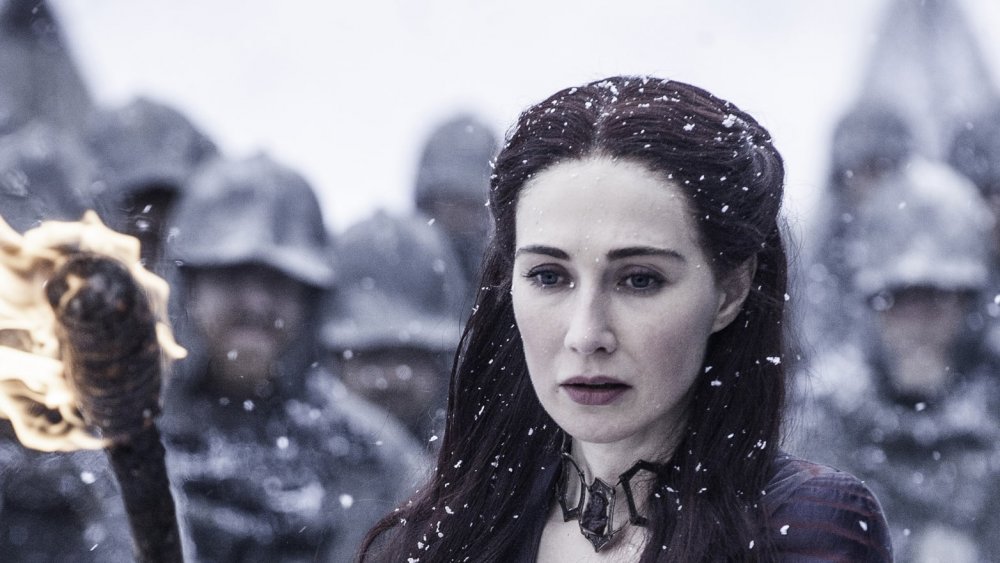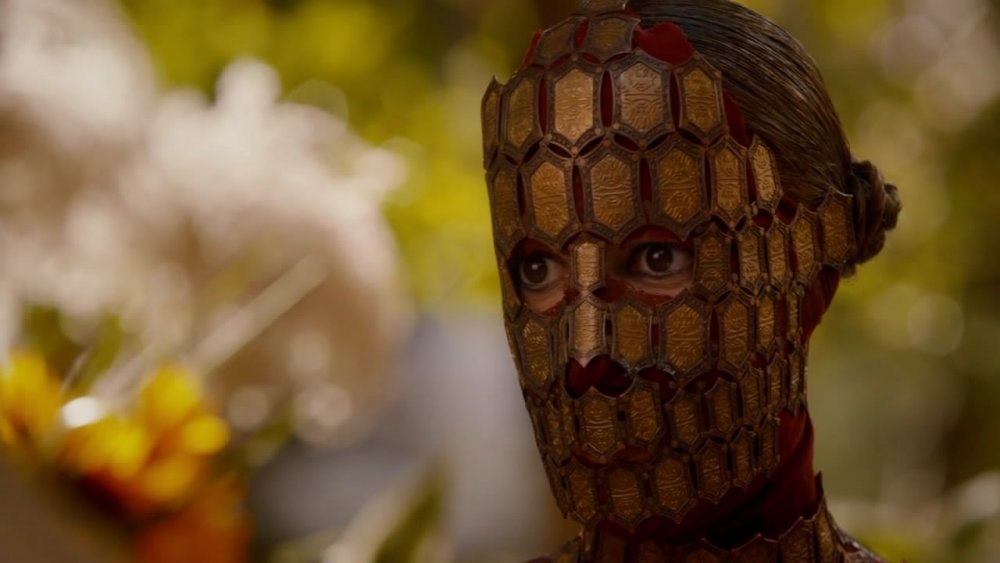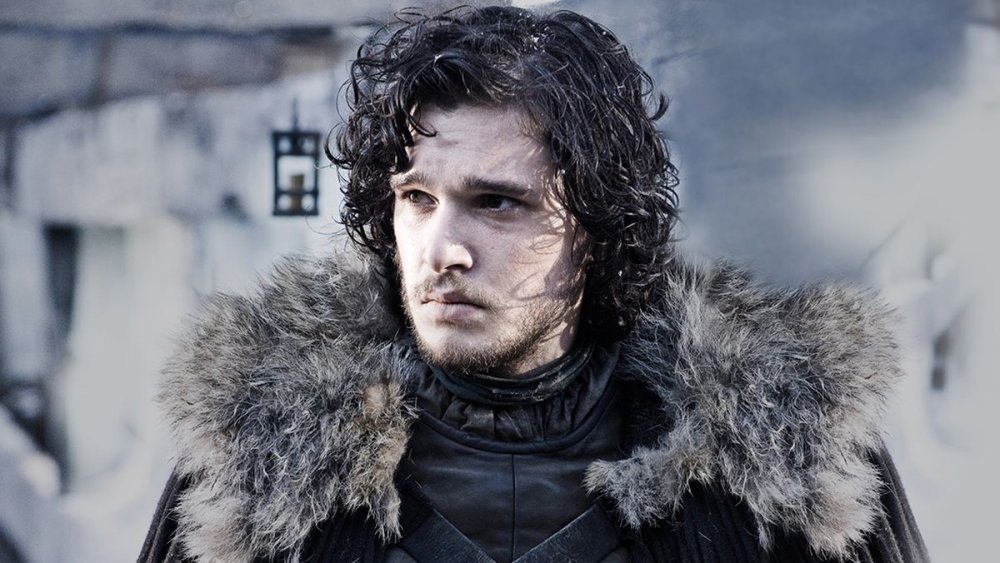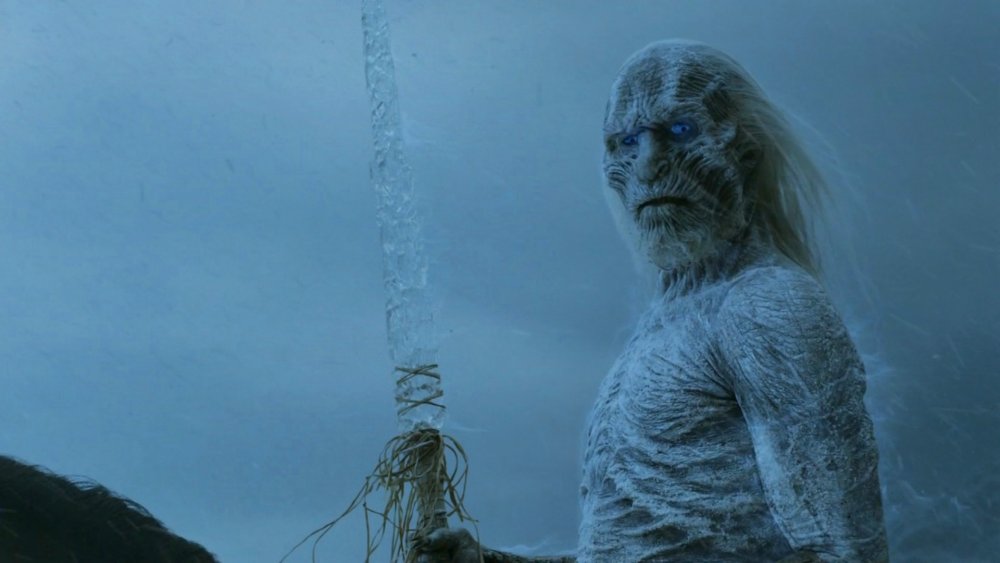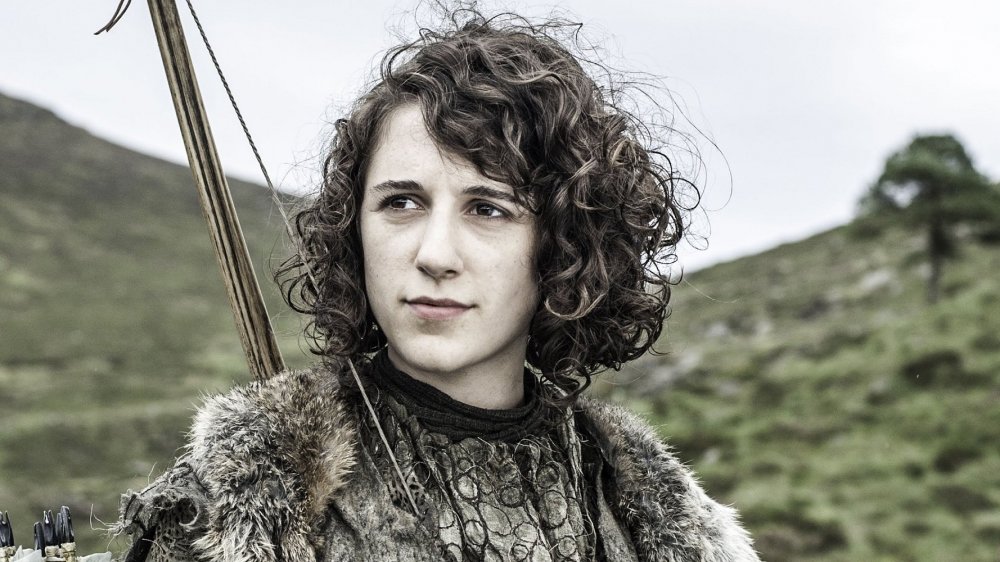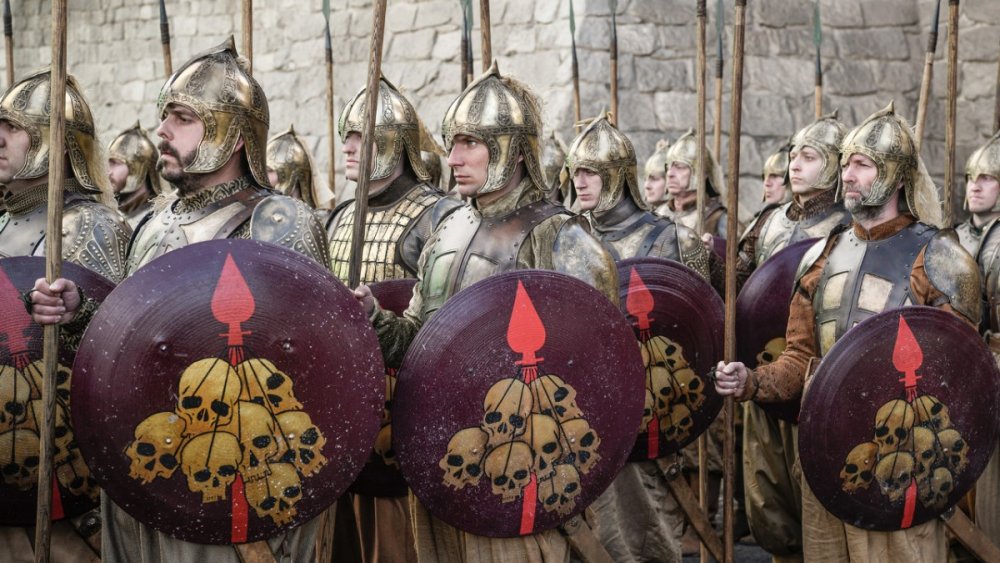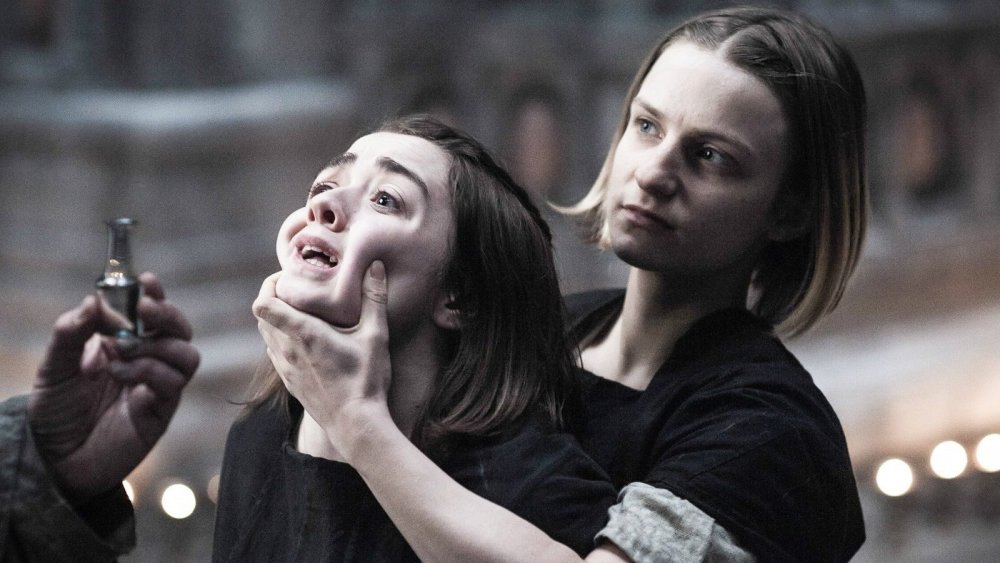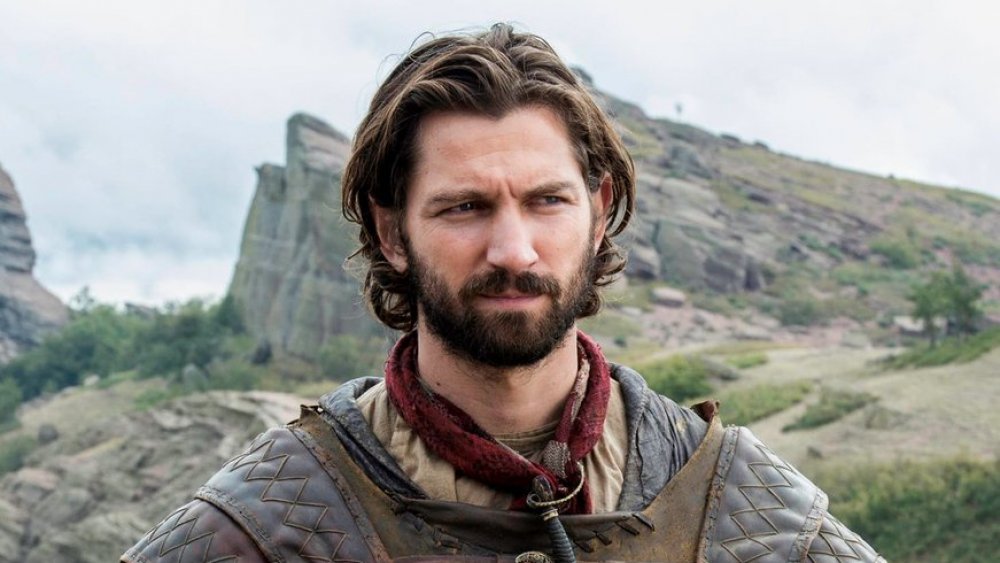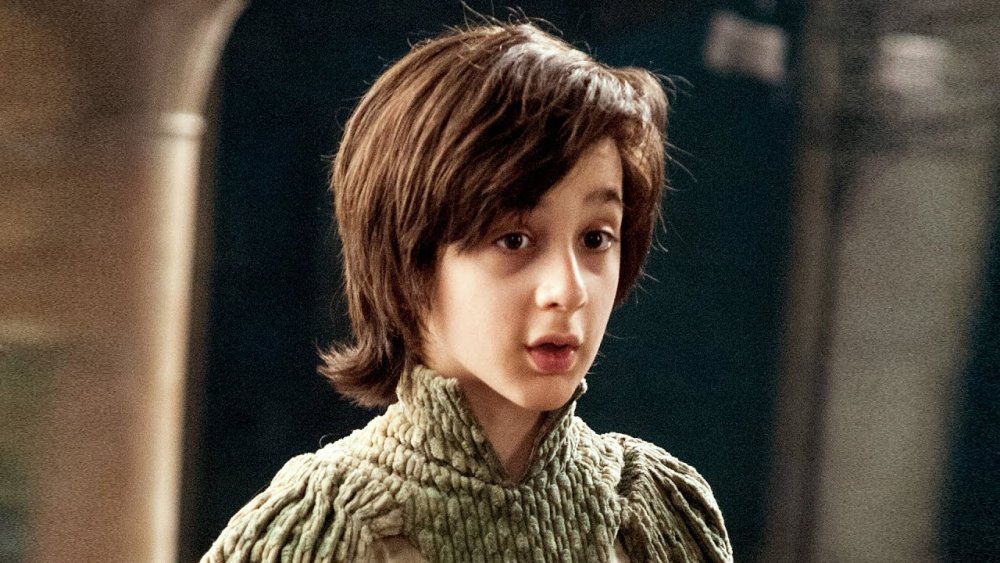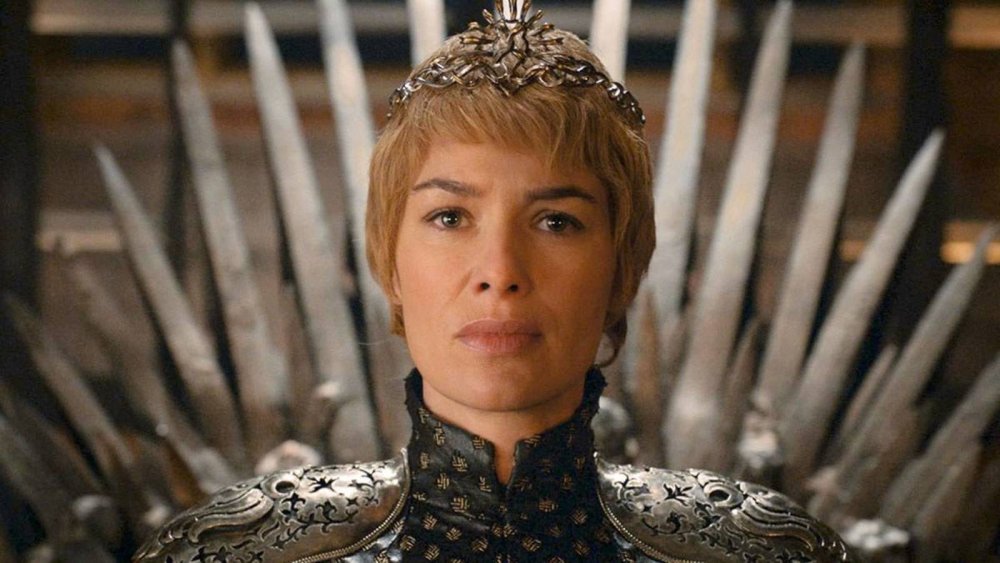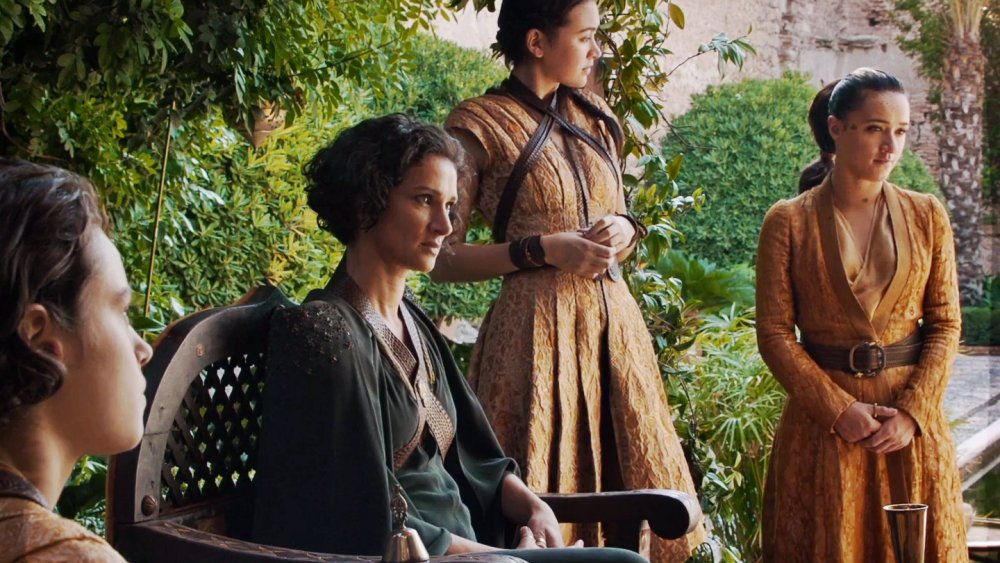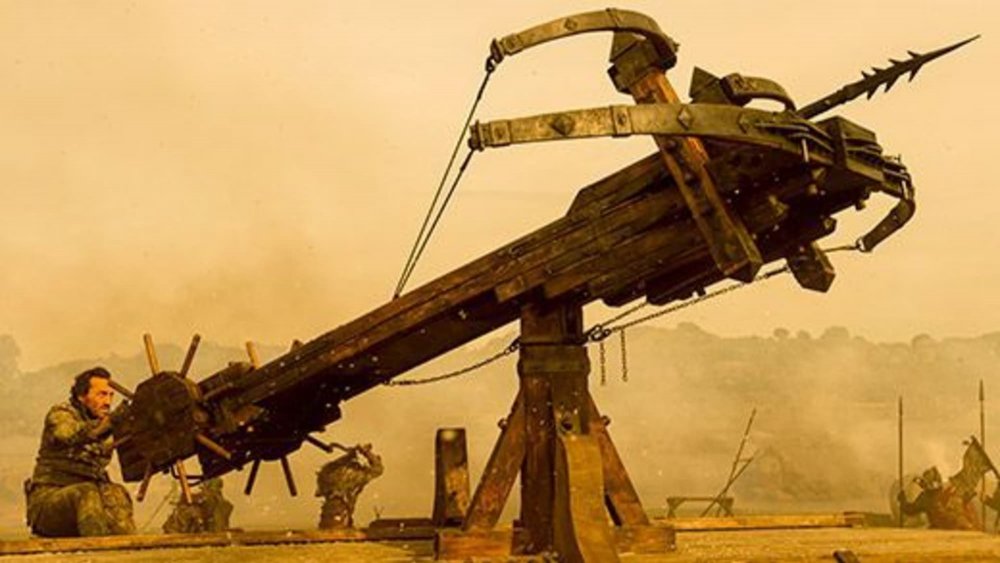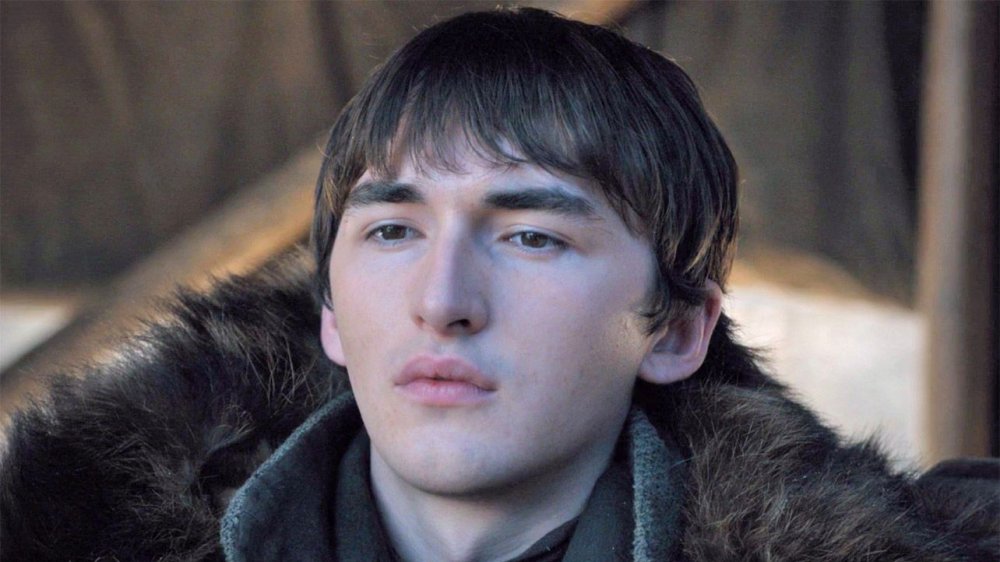Game Of Thrones Plotlines That Never Went Anywhere
While there have certainly been criticisms of how the show wrapped up, viewers are generally in agreement that Game of Thrones is one of the greatest television shows of all time. In an era of high-quality TV that's proven the audience's ability to appreciate complex plots and dynamic characters, Game of Thrones pushed the boundaries by cramming its episodes full of multi-layered storylines and more than 150 prominent characters. That's a lot for fans to keep straight, and they weren't alone in the challenge, as it sometimes seemed that the show's writers forgot about different elements themselves.
Whether you agreed with how they were resolved or not, most of the series' major plotlines were capped off in one way or another. But that being said, there were still a slew of threads that were seemingly dropped abruptly or that eventually petered out without offering much in the way of a payoff. Maybe it was because as the story progressed, the writers decided that various plot points weren't important to the overall narrative ... or maybe they simply forgot. It was a lot to juggle, after all.
In any case, here are a few of the most notable Game of Thrones plots that never went anywhere.
Game of Thrones dropped the ball on the Prince that was Promised
Early in the series, we were introduced to Melisandre, a Red Priestess who followed the Lord of Light and worked her magic in favor of Stannis Baratheon. While it was never explicitly explained how she came into his service and earned her position as his most trusted counselor, she did reveal that she believed him to be "the Prince that was Promised" by the aforementioned Lord of Light, and that the prophesied prince would one day save and rule the Realm.
Around the same time, we met one-eyed Beric Dondarrion and the Brotherhood without Banners, a collective that opposed Lannister rule while worshiping the Lord of Light. Beric — who died numerous times but was always resurrected, presumably with the aid of the Lord of Light — was constantly espousing his hunch that said Lord had a plan for everybody. So it kind of seemed like his conception of religion overlapped with Melisandre's.
But by the series' final season, this prophesy and the importance of the Lord of Light had all but faded away. Yes, Melisandre admitted after the death of Stannis that she made a mistake, but she then concluded that Jon Snow must in fact be the Prince that was Promised. He, however, doesn't end up ruling the Realm, and let's not forget that it was Arya who killed the Night King. So is she the promised one?
And while another Red Priestess — the momentarily glimpsed Kinvara — declared Daenerys the Princess that was Promised, well ... we all know how things turned out for Daenerys. All in all, it seems that the whole prophesy and Lord of Light thing was a muddled plotline that didn't pay off.
Quaithe of Qarth just disappeared
In the second season of Game of Thrones, we follow Daenerys and Jorah to Qarth, where they're on a quest to find the Mother of Dragons' missing, fire-breathing children. And out of nowhere pops up a mysterious masked woman named Quaithe, who provides Jorah with a clue that helps them find the wayward dragons.
Quaithe — with her unique aesthetic and cryptic nature — seems poised to make further appearances in the show, but we never see her again. She just entered the scene for a hot second, provided a clue, then disappeared.
While she played a bigger role in the books, in the show, her character was rather pointless. It either seems like the writers included her with the intention of bringing her back later on, then decided to drop her, or it was just a lazy attempt to move the plot along. Whatever the case, her character didn't add much, and her inclusion didn't really have a conclusion.
The whole 'Jon Targaryen' thing is a pretty weird plot
What's up with Jon Snow's Targaryen lineage? Seriously, while many of the abandoned plotlines left lingering questions but would've had a relatively small impact on the overall situation in Westeros, this one is a pretty big deal.
As the only surviving Targaryen, this news has huge potential in terms of shaking up the established order of the Realm. It's one thing if Jon's surprise parentage was only known by a handful of people, but we saw Varys writing the news on several notes that he presumably sent via raven all over the Realm. Wouldn't this have sent shockwaves through a kingdom that seems pretty committed to the whole concept of bloodlines?
And while we're on the subject, why did both of Rhaegar Targaryen's sons get named "Aegon?" He already had one son bearing the name, then when he and Lyanna Stark bore Jon, the kid was secretly named the same thing. That seems like one Aegon too many.
What's up with the White Walkers' behavior?
From literally the first shot, the White Walkers were poised as the big baddies of the entire series, and while whether or not their grand finale was a little underwhelming is up for debate, one thing we can all agree on is that a lot of their behavior went unexplained. For example, remember how at the very beginning we were shown how they arranged the bodies of their victims into some weird symbol? These White Walker symbols actually popped up a number of times, but no explanation was given.
Then there was the White Walker baby. As you'll recall, whenever one of Craster's daughters bore him a child, the infant was deposited in the woods and left as some kind of sacrifice to the Walkers. When we finally saw what the Walkers did with the babes in the woods, it was revealed that at a touch ,the child's skin turned pale and its eyes turned that creepy White Walker blue. So what gives? Is it a White Walker now? And if it was "turned" in season four, does that mean it was attacking Westeros as a four-year-old in season eight?
And what about the time when Sam seemed to be in the White Walker's clutches, but they just gave him an intense stare and let him go? Shouldn't he have been drafted into the army of the dead? Suffice to say that the behavior of the White Walkers left questions unresolved more than once.
What happened to Meera Reed?
Remember Meera Reed? She and her brother, Jojen, spent most of the series helping Bran Stark venture north of the Wall to find the Three-Eyed Raven. By the time Bran became said Third Eye Bird (and yes, that's a bad pun based on the '90s alt-rock band), Meera's brother was dead, and she'd rescued the future ruler from the Night King's wrath.
Once they returned south of the Wall at the end of season seven, she informed us that she would be heading back home to Greywater Watch so that she could be with her family when the White Walkers arrived, which begs the question, where was Meera throughout season eight? Doesn't it seem like this character who'd become so integral to Bran's story — which as Tyrion informed us was the best story, and whether you agree with him is beside the point — would reappear with family and fighters in tow to help with the supposed last stand?
Golden Company never proved its mettle
Near the conclusion of the battle between the Lannisters and pretty much everybody else, Cersei makes a deal with the Iron Bank that will not only provide her with the funding she needs to continue fighting but also an army called the Golden Company that's touted to be a formidable force to be reckoned with. So, by the time the big showdown comes, we expect some epic face-off between the Golden Company and Daenerys' Unsullied and the Dothraki.
But it never comes. What fighting we do see is essentially a one-sided melee in which the generic guard force of King's Landing gets decimated before Daenerys goes all fire crazy. For such a big build-up, it would've been nice to see the Golden Company do ... anything at all. And while we're on the subject, what ever happened with the Iron Bank? They made it clear that they always get paid what they're owed, but that's going to be mighty tricky considering Cersei's end. Or maybe Bran assumes the debt along with the throne?
Arya's different faces never really paid off
Without a doubt, Arya Stark had one of the most interesting character arcs in the entire series. Her transformation from frustrated youngster to master assassin was a delight to watch. But there was one question that left many viewers scratching their heads. What happened with her ability to change faces?
Arya spent a sizable portion of the show's runtime suffering to learn this skill, but when she finally brought it out into the world, she only used it once. Sure, it was great to see her get revenge for the Red Wedding massacre of her family, but it was such a momentary glimpse of her power that it really seemed like it was setting us up for a more elaborate use somewhere down the line.
But it never came. She did mention that she possessed the ability once to her sister Sansa, which seemed like yet another tease of face-stealings to come, but it didn't happen. Considering all she went through to learn it, it seems like such a hard-won skill would've come into play in the final fight.
Daario Naharis disappeared from Game of Thrones
When Daenerys added to the ranks of her army the sellsword services of the Second Sons, she got with them an advisor — and eventual lover — in the form of Daario Naharis. Daario proved to be a central ally and supporter through several seasons, and he played a central role in the conquest of Essos.
Then rather abruptly, Daenerys ordered him to remain behind and maintain order in Meereen while she continued on to Westeros. He wasn't thrilled about her decision, but like a good solider, he did as he was told. At that point, it seemed likely that he and the Second Sons would show up later to help in the fight for the Iron Throne or perhaps to combat the White Walkers.
But we never saw Daario again. This disappearance seemed rather abrupt for a character who'd become so important to his queen's success. The most likely explanation is that the writers had decided that Daenerys would fall in love with Jon Snow, so Daario was shoehorned out for the sake of convenience.
Robin Arryn is absent from a lot of the plot
When we first meet Robin Arryn, Warden of the East and Defender of the Vale, he's a crazed child of perhaps 12, still breastfeeding from his mother and possessing a psychotic enthusiasm for seeing people put to death via plunging from his "Moon Door." Later, we see Robin again when Sansa is brought to the Vale by Littlefinger, and while he's at least been weaned from his mother's milk, he's still a pretty weird dude.
Through seasons five and six, we get brief glimpses of Robin training with the sword and bow with increasing skill, which seems to portend his involvement in the fighting to come. His foray into battle, however, never happens. The only time we see him after season six is in the last moments of season eight, as he silently takes part in the council to determine the new king.
So what happened to Robin's storyline? Narrative logic implies that Robin's growing maturity and fighting ability would've made him a character of some consequence late in the series but to no avail. Instead, it seems as if the writers weren't really sure what to do with him, so they decided to edge him onto the sidelines.
What's going on with Cersei's first child?
We all know that Cersei Lannister's future was prophesied when she was a young girl by a witch named Maggy the Frog, who told the future queen that she would have three children ... but that each of them would die. Accordingly, first Joffrey died of poisoning. Then, Myrcella was poisoned by the Sand Snakes. And finally, Tommen committed suicide by leaping to his death. So far everything checks out.
Or does it? Because if you'll recall, Cersei told Catelyn Stark that she had a fourth child with Robert Baratheon who died of a fever not long after birth. And while Cersei had a tendency to be sneaky and say whatever served her aims, we know this kid was real thanks to independent verification from Robert himself. So what gives? Maggie's prophecy came after this revelation, so does this retcon the fourth child, or was the prophecy only partially true? Or was this just a case of sloppy writing?
Daeny's allies in Dorne just vanished from Game of Thrones
Before being captured and imprisoned by the Lannisters, Ellaria Sand of Dorne pledged her army and the support of her kingdom to Daenerys. This would've been a pretty big help as the Dornish armies remained untouched by the War of the Five Kings. So, if Yara Greyjoy had completed her mission and used her fleet to pick up said army, Daenerys' forces would've been greatly expanded. But instead, Yara's fleet was intercepted and destroyed by Euron Greyjoy, and as a result, the army of Dorne was left on standby.
So what happened? Theoretically, there was an entire army ready and waiting to fight. One way or another, it seems like Daenerys and company would've found a way to get them, or if it was impossible for some reason, you'd think that particular issue would've been addressed. At that point, Daenerys was pretty desperate to expand her forces, so it's hard to imagine that she would've left this potential boon go to waste.
The scorpions don't really pay off
One of the biggest concerns Cersei had as her confrontation with Daenerys loomed was the fact that the latter had three big, fire-breathing dragons. And this was a pretty valid consideration, not only because, duh, they're dragons, but because dragons had been instrumental in establishing the Targaryen rule in the first place.
So when Team Lannister realized that not only could the dragons be hurt, but that one had actually been killed, they crafted giant crossbows called "scorpions" that they hoped would be capable of bringing the dragons down. And as we found out, these scorpions were pretty effective, as they made quick work of one of Daeny's pets, which was killed by a big arrow through the neck in a battle against Euron Greyjoy.
But after that, the scorpions seemed to be completely useless. When Daenerys made her final assault on King's Landing, not only did the scorpions pose little to no danger, but we were quickly informed that they were all destroyed almost immediately. So much for the build-up.
In Game of Thrones, Bran shouldn't be the lord of anything
When the final episode of Game of Thrones aired, to say that many viewers were left underwhelmed would be an understatement. And while there were plenty of complaints about how the whole thing wrapped up, one of the most vocal criticisms involved the selection of Bran as king.
And it should come as no surprise that people were confused by this outcome. Not because Bran wasn't as popular as fan favorites like Jon or Arya. And not because he was arguably less deserving than Sansa. No, it was because Bran himself had explicitly told us that he was no longer human enough to lead.
"I can never be lord of Winterfell," Bran said. "I can never be lord of anything. I'm the Three-Eyed Raven." But then later, when Tyrion asked if Bran would accept the throne, the Broken replied, "Why do you think I came all this way?"
Bran's intentions seem to have made a pretty big jump in the time it took him to make these two statements. So did the writers think there was a drastic distinction between being lord and king? Or did they simply forget about his earlier assertion? Or did they just hope we didn't notice? In any case, with an audience as devoted as the Game of Thronesters, the writers should've known that we'd be paying attention.
